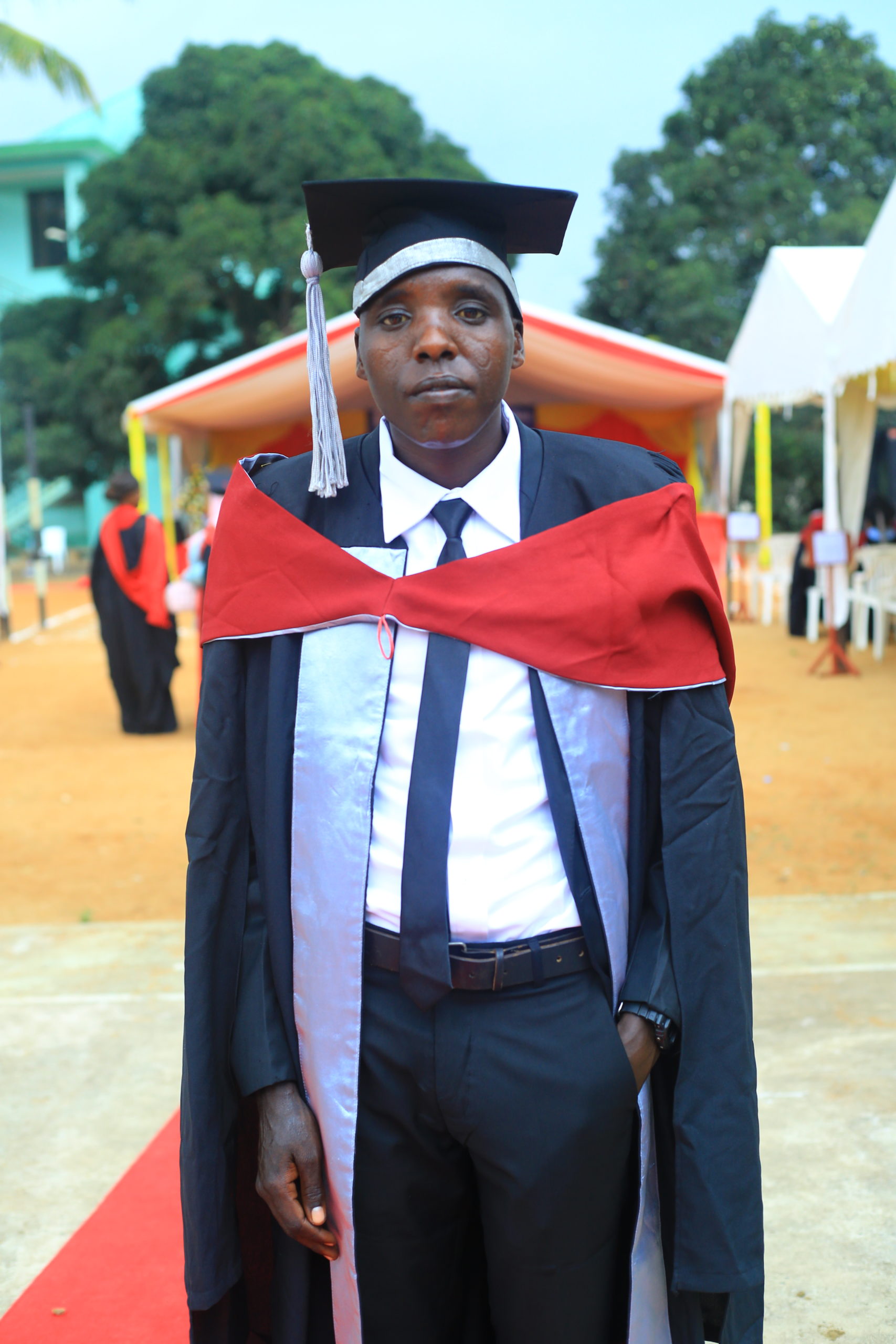Kasale’s human rights activism precedes his years. The son of pastoralist parents from Ngorongoro district in northern Tanzania, he grew up seeing his parents and entire community having to defend their land and way of life against authorities who thought their lands could be put to better use. Now, at 25, Kasale is already one of the most recognizable advocates of his people’s cause, much to the ire of Tanzanian authorities.
“Our people’s struggle goes back many generations. It started with the pushing out of our forefathers from Serengeti to gazette Serengeti National Park in 1959, and then further evictions from the Ngorongoro crater to gazette the Ngorongoro conservation area in 1975. Since then, every generation has had to resist further evictions. It’s now my generation’s turn,” he says.
Kasale Maleton Mwaana Tweet
Ngorongoro is one of the seven districts of northern Tanzania’s Arusha region. The over 5400 sq mile territory is originally the home of Tanzania’s Masai pastoral community, who gave it its name -Ngorongoro, from the sound of the cowbell (ngolo, ngolo). The area is known for its lush plains and fertile lands, guaranteeing all-year pasture and water for cattle and other animals.
But the area’s fertility also meant that it was an attractive habitat for a lot of other fauna, and in 1959, the colonial government gazetted the territory’s west into Serengeti National Park. They relocated the Maasai pastoralists to the Ngorongoro crater in the park’s east, where they signed with them an agreement that allowed the Maasai to permanently settle and utilise the land. However, in 1976, the Ngorongoro Crater was transferred to the management of the Ngorongoro Conservation Area Authority (NCAA) which further pushed out the Maasai to create the Ngorongoro Conservation area.
“The more the authorities of the day tasted revenue from game-tourism, the more they pushed our people away from their lands, without regard to how long they had stayed there or where they would go,” says Kasale
Kasale Maleton Mwaana Tweet
Pushed from their traditional and most fertile lands and with increasingly limited water and pasture, the Maasai lost their cows in thousands. In 2009, the NCAA placed new restrictions on human settlement and subsistence farming in the Ngorongoro conservation area, practically making it untenable for the Maasai to live in the area.
Kasale was 12 years then, and he saw his and his family’s life change because they could not carryout traditional farming on their own land. “That was the first time I became conscious of the injustice happening all around us,” he says. Then in school, and forced to take turns at studying and resettling his parents’ cattle, he swore to study hard and confront the authorities behind his and his parents’ endangered existence.
Last year, the Tanzanian government moved to gazette another 1500 sq kms of important pasture land for pastoral communities in Liliondo division as a hunting block for OBC – an Arab trophy hunting company that has been the subject of controversy in the area. Resident communities were forcefully evicted in an operation characterised by gross human rights violations.
“Maasai bomas (houses) within the said 1500 km territory were burnt by game rangers. A lot of cattle were seized without compensation, and those who tried to resist were either killed or brutally injured. Moreover, those injured could not seek treatment in local health facilities for fear of being traced back by the operation enforcers, so they had to cross the border into Kenya for treatment,” says Kasale.
Kasale Maleton Mwaana Tweet
At the time, Kasale was doing his final year at university where he is pursuing a bachelors degree in science and education, and he decided he would let the world know about the human rights violations going on in his area. He mobilized fellow students from the Ngorongoro area to speak to local and international press about government excesses in the area, and invited journalists to Ngorongoro to witness first hand accounts of the human rights abuses taking place.
They also started neighborhood barazas to sensitise their people on how to report rights violations. When government started intimidating media houses not to carry stories of the government operation in Ngorongoro, Kasale and his peers turned to social media, exposing such violations on Facebook, Instagram and Twitter for the whole world to see. For his efforts and relentlessness, Kasale became a marked man:
“ The NCAA reached out to the Ngorongoro Pastoralists Council (NPC) who are sponsoring my university education to warn me that if I didn’t stop my activism, they would withdraw my school scholarship. Between April - September 2022 my life was generally in danger because I was on the list of activists wanted by the government and the NCAA for sabotaging their project. As such, in June 2022, thanks to support from the Tanzania Human Rights Defenders Coalition, I was able to secretly relocate to Dar-es-salaam because I had gotten reliable information that I was to be kidnapped or even killed,” he says.
Kasale Maleton Mwaana Tweet
Despite the threats and intimidation, Kasale is not deterred. He says he will continue to speak up for the rights of his people because they have nowhere else to go.
“I must keep doing this. Our people are losing their ancestral land, their culture and cultural sites. We’re also losing our unique way of life -pastoralism, which is not only an economic activity but our very livelihood. Someone must stand up for the community,” he says.
Kasale Maleton Mwaana Tweet

